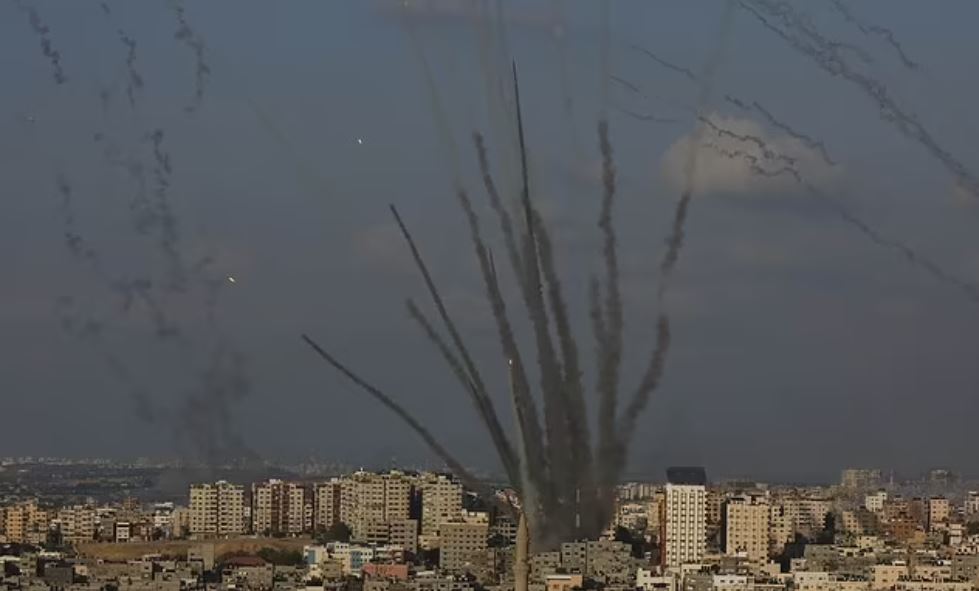
By Rami Ayyub
JERUSALEM (Reuters) – Israel’s rapprochement with Gulf Arab states has left the Palestinians feeling abandoned by traditional allies and clutching an old playbook in a rapidly changing Middle East, analysts and critics say.
As the United Arab Emirates and Bahrain prepare to sign normalization accords with Israel at a White House ceremony on Tuesday, Palestinian leaders face calls to overhaul their strategy to avoid becoming marginalized in a region where Israel and most Sunni Arab regimes share a fear of Iran.
The Palestinian approach to securing freedom from Israeli occupation has for years relied on a longstanding pan-Arab position that called for Israeli withdrawal from the occupied West Bank and Gaza and Israel’s acceptance of Palestinian statehood, in return for normal relations with Arab countries.
But the Palestinians last week failed to persuade the Arab League to condemn nations breaking ranks.
Tuesday’s ceremony, hosted by U.S. President Donald Trump, will be “a black day in the history of Arab nations”, Palestinian Prime Minister Mohammad Shtayyeh said on Monday.
Shtayyeh said the Palestinians are now discussing whether to “adjust Palestine’s relationship with the Arab League.”
But critics say the proposed move is too little too late, with President Mahmoud Abbas facing mounting criticism for their increasingly isolated position.
“There is very little indication that the (Palestinian) leadership is contemplating a break from its approach,” Tareq Baconi, an analyst with the International Crisis Group, told Reuters.
The Palestinians’ strategy centers on holding Israel to account in international legal tribunals, and trying to break the United States’ dominance over the Israeli-Palestinian peace process, Baconi said.
“Arab and European support in that strategy is crucial, but it is questionable that the Palestinians will be able to secure either to the level required to ensure a just peace.”
TWO-STATE SOLUTION
Despite signs of shifting Arab support, Saeb Erekat, Secretary General of the Palestine Liberation Organization (PLO), said the underlying Palestinian strategy for achieving a state in the West Bank, East Jerusalem and Gaza would not change.
“To stay on the grounds of international law, international legality, to seek peace based on ending Israeli occupation and a two-state solution … we cannot depart from these squares,” he told Reuters.
While conceding difficulties faced by a Palestinian leadership under Israeli occupation, analysts nevertheless say Abbas does have some options.
After years of in-fighting between the two main Palestinian factions, Abbas’s Fatah and Islamist Hamas, long-overdue elections would refresh the president and parliament’s mandate and boost their leverage abroad by increasing their legitimacy at home, analysts say.
“We need to … rebuild the PLO’s institutions from the ground up and cement relations between Palestinians here and in the diaspora,” Gaza analyst Talal Okal said.
Over six million diaspora Palestinians, he said, “can influence the communities they live in so the Palestinian cause has a place on the agendas of their host governments.”
TRUMP BOYCOTT
One area where Abbas has widespread public support – 70% in recent polls – is his two-year boycott of the Trump administration, which he accuses of pro-Israel bias over its recognition of Jerusalem as Israel’s capital and endorsement of Israel’s West Bank settlements.
Frustrated by the Palestinians’ refusal to take part in Trump-led talks, the White House has sought to bypass Abbas and his team, apparently hoping they will see the deals with the UAE and Bahrain as incentives to return to negotiations.
For more than two years Trump’s son-in-law Jared Kushner has tried sidestepping Abbas to appeal to Palestinians directly, telling Al-Quds newspaper in 2018: “The world has moved forward while you have been left behind. Don’t allow your grandfather’s conflict to determine your children’s future.”
That has had little apparent success. And the Palestinian leadership at first engaged with the Trump administration. Until, said Erekat, they concluded that “these people want to dictate a solution, not negotiate a solution … they’re the ones who are departing from international law.”
Dennis Ross, who served as a Middle East adviser under Republican and Democratic administrations, had cautionary words for both sides.
While the Gulf deals served notice that Palestinians “don’t have a veto on normalization as regional dynamics shift” the Israelis, he said, “cannot wish the Palestinians away — and standing pat also means increasing the risk of one state for two peoples.”
(Additional reporting by Nidal al-Mughrabi in Gaza, Ali Sawafta in Ramallah, Adel Abu Nemeh in Jericho and Matt Spetalnick in Washington; Editing by Stephen Farrell, William Maclean)






